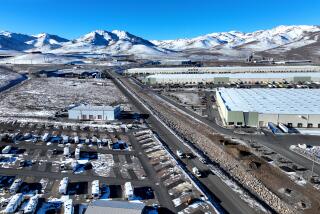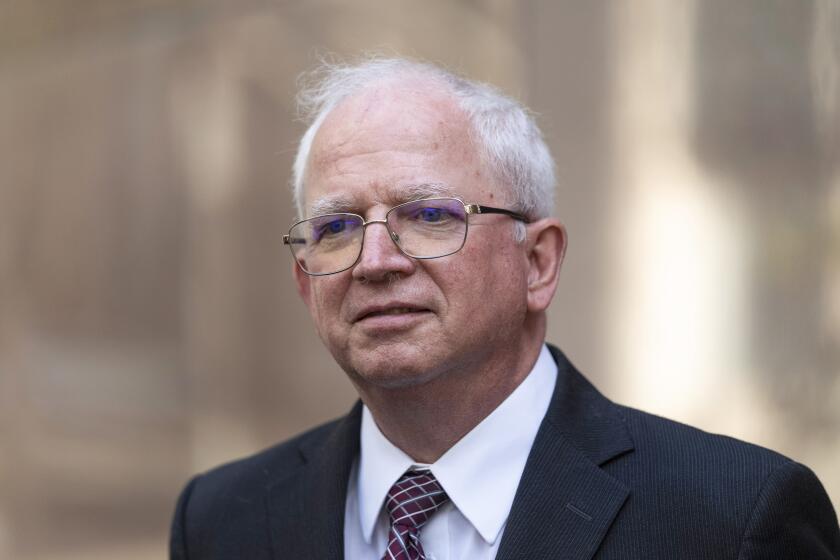Secret Vote at Risk, Suit States
Arguing that disabled voters will be adversely affected if electronic voting machines are barred in the November election, Riverside County filed suit Thursday against Secretary of State Kevin Shelley for decertifying the computerized voting systems.
“To return to paper ballots ... would be a huge step backward,” said county Registrar of Voters Mischelle Townsend, who, along with advocates for the disabled, filed the federal lawsuit. “That would be a disservice to the public.”
In 2002, Riverside became the first county in the state to switch to electronic voting machines and has used the system in 29 elections without problems, she said.
Shelley once championed electronic voting, but on Friday withdrew his approval of it because of security concerns and several election day errors in counties that recently switched to electronic voting, including San Bernardino, San Diego and Orange counties.
Four counties that use the Diebold Accuvote-TSx system were completely barred from using electronic voting, while 10 other counties, including Riverside, that use systems designed by other companies could reapply for certification if 23 new security conditions are met. Those include providing paper ballots for voters who choose not to vote electronically, sharing software codes with the secretary of state and adopting measures to ensure equipment operates properly.
The intent of the new conditions was to guarantee that all votes cast in California be counted, said Doug Stone, Shelley’s spokesman.
“The integrity of the voting system applies to all voters,” Stone said.
“The bottom line is every voter, disabled or not, has to have their vote counted accurately, utilizing a secure system.”
The Riverside County lawsuit argues that Shelley’s order violates the 14th Amendment of the Constitution, the 1990 Americans With Disabilities Act, the Help America Vote Act of 2002, state election codes and other laws.
“The Secretary’s decertification orders will deny voters with disabilities the right to vote independently, in secret and without third party assistance, impose new unfunded costs on counties and create chaos and inequality in the November, 2004 election by requiring counties with [electronic voting systems] to go back to inferior paper based voting machines with higher rates of error, nullified votes and votes not recorded,” the lawsuit states.
Los Angeles attorney John E. McDermott, who is representing the county and the disabled voters, said he expected others to join the lawsuit, including possibly Kern and Napa counties.
Peter Benavidez, a partly blind Riverside resident who is among the plaintiffs in the suit, said he would dread returning to paper ballots.
When forced to use paper ballots, he has to tell a poll worker his selection, and the poll worker then marks the ballot.
With electronic voting, he slips on headphones, listens to the options, and selects a candidate by pressing a button. Then his choices are reviewed through audio, and he can double-check his choices.
More to Read
Get the L.A. Times Politics newsletter
Deeply reported insights into legislation, politics and policy from Sacramento, Washington and beyond. In your inbox three times per week.
You may occasionally receive promotional content from the Los Angeles Times.







